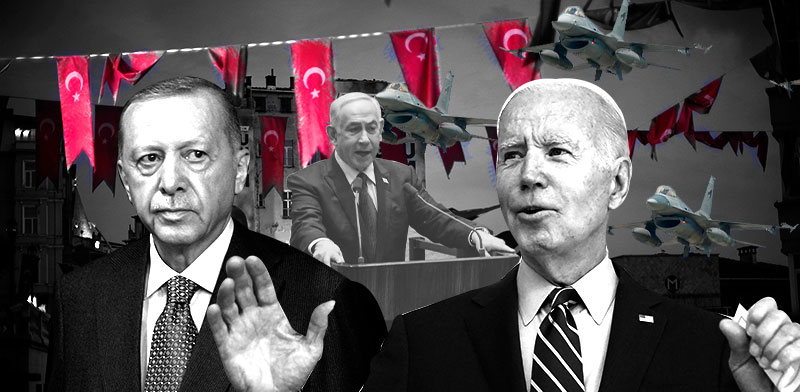For many years, the phrase “The road to Washington goes through Jerusalem” has been widely used, highlighting Israel’s importance in international relations. Turkey was the first Muslim country to recognize the State of Israel in 1949, with the aim of strengthening ties with Washington and eventually joining NATO in 1952 due to fears of Soviet expansion after World War II. However, recent tensions between Prime Minister Binyamin Netanyahu and US President Joe Biden have shown that traditional alliances have shifted.
Despite longstanding animosity between Erdogan and Biden, their relationship is based on mutual opportunism. Biden needed Erdogan’s approval for Sweden to join NATO, while Erdogan desired to upgrade his air force after being removed from the F-35 program due to purchasing Russian S-400 air defense systems. As a result of these mutual needs, their relationship has become closer, with Erdogan expected to visit the White House in May.
The sale of 155mm shells and related equipment to Israel highlights the challenges in the global arms market. Increased demand due to conflicts such as the war in Ukraine has led to a shortage of supply, prompting the US to invest in increasing its production capacity. Negotiations with Turkey for the purchase of shells and explosives demonstrate a growing partnership between the two countries in defense production.
Erdogan’s ability to navigate complex geopolitical relationships, such as supplying drones to Ukraine while acquiring S-400 batteries from Russia, illustrates his strategic approach. Turkey’s involvement in the production of 155mm shells on US soil further strengthens its position as a key player in the arms industry. This cooperation reflects the changing dynamics of international alliances and the interconnectedness of global defense systems.
In conclusion, traditional alliances have shifted as new opportunities arise in international relations. The sale of 155mm shells and related equipment demonstrates this shift as countries seek out new partnerships and investments in defense production. The future will likely bring further changes as nations continue to navigate complex geopolitical relationships and adapt their strategies accordingly.


